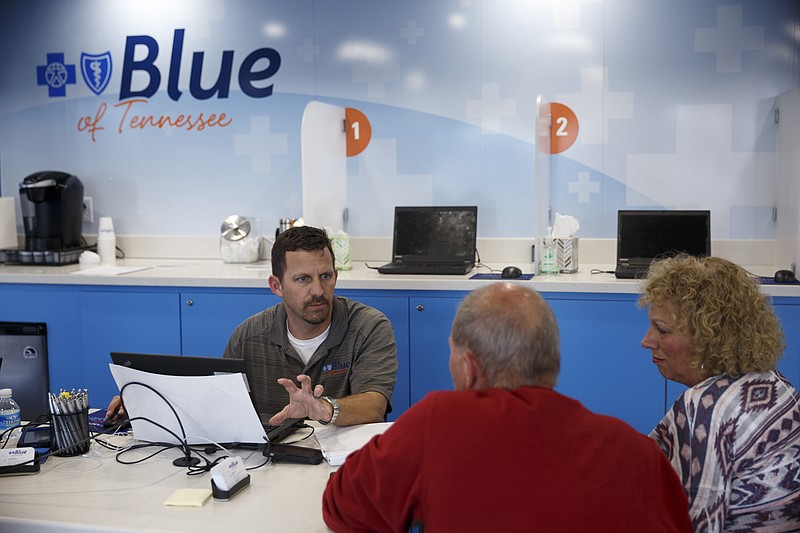Despite raising its rates some 36 percent, Chattanooga-based BlueCross BlueShield signed up 16 percent more Tennesseans on the health care exchange for 2016 than for the previous year.
"I think we did well," said Kelly Paulk, vice president of product strategy and individual markets for BlueCross. "We are pleased with the outcome."
BlueCross reported signing up 166,425 Tennesseans this year versus 143,000 last year. The number of Tennesseans who signed up for the state's health insurance exchange soared to 268,867.
If last year is a guide, that number will decline throughout the year, Paulk predicted. "About 15 percent will drop out, won't make a payment," she said, "Throughout the year, people's circumstances change, they get a new job with health care, so it is not unusual to see some attrition throughout the year."
Three other insurance companies, UnitedHealthcare, Cigna and Humana, competed for the remaining Tennessee enrollees. None of those companies has yet released figures on their number of sign-ups.
Despite its increased number of enrollees, BlueCross expects to seek another rate increase this year, probably in the 30 percent range, according to Roy Vaughn, vice president for corporate communications.
The insurance company offered consumers the lowest rates in the nation the year the health insurance exchanges launched, according to Vaughn, but badly underestimated how much they would need to spend providing health care to their new enrollees. The number of newly insured Tennesseans who needed medical care "was three times what we had projected," Vaughn said.
Added Kelly, "We knew that we would get some sick people, but we just got more sick people than we expected, and they were sicker than expected."
"Over the last two years, we have had $300 million in losses," Vaughn said. "That is not something we can sustain forever - we have to achieve a sustainable model. That's where we're focused."
BlueCross BlueShield and other insurance companies had expected to be reimbursed for some of their losses by the federal government. As part of the Affordable Care Act, insurance companies were promised that a percentage of their losses would be repaid for the first three years of the program, to convince them to participate in the health care exchanges. But because of the way the programs were structured and budget cutbacks by Congress, the funds have not been paid. BlueCross had expected to receive as much as $200 million in reimbursements, Vaughn said.
BlueCross Blue Shield officials said about 87 percent of its exchange members will receive some form of federal assistance with their insurance premiums. Twenty-six percent of its health care exchange members are so-called "young invincibles"- people ages 18-34 who may not believe they need health insurance because they don't expect to be ill.
Contact staff writer Steve Johnson at sjohnson@timesfreepress.com, 423-757-6673, on Twitter @stevejohnsonTFP, and on Facebook, www.facebook.com.noogahealth.
